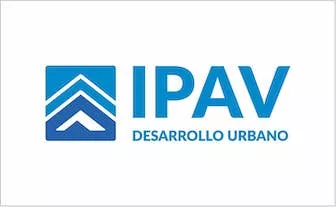Betting operators face enormous challenges when expanding internationally. Each country enforces unique regulatory requirements that affect everything from player verification to data storage. Agreegain developed specialized compliance modules that automatically adapt platform behavior to meet local licensing standards. This approach dramatically reduces the technical burden of entering new markets while ensuring operators maintain full regulatory compliance.
Gambling regulations vary dramatically between jurisdictions. Some countries focus on player protection measures, while others emphasize tax collection or anti-money laundering controls.
Most operators struggle with these requirements because traditional platforms weren’t designed for regulatory flexibility. Their software often requires extensive customization for each new market, creating months of development work and significant compliance risks. Each regulatory update forces another costly development cycle.
The Compliance Challenge
International expansion requires addressing numerous market-specific requirements. UK authorities mandate strict responsible gambling tools and detailed financial reporting. Italian regulators require local data storage and specific API connections to government systems. German rules impose strict deposit limits and game speed restrictions. These conflicting standards create overwhelming complexity for operators seeking multi-jurisdiction presence.
Technical teams typically handle these differences through custom code branches for each market. This approach quickly becomes unsustainable as regulatory changes force continual updates across multiple codebases. The risk of compliance failures grows with each new market, creating both legal exposure and operational overhead.
Modular Compliance Architecture
Agreegain tackled this problem by developing a fundamentally different approach to platform design. Their developers built a system where regulatory requirements exist as configuration parameters rather than hardcoded rules. The platform includes specialized compliance modules that operators enable and configure for each jurisdiction they enter.
These modules control critical functions like age verification, responsible gambling tools, financial limits, and regulatory reporting. The system maintains separate rule sets for each supported jurisdiction while sharing core functionality across all markets. When regulations change, operators update configuration parameters rather than modifying core code.
Technical Implementation
The practical execution involves several sophisticated components working together. At the core sits a rules engine that evaluates player actions against jurisdiction-specific requirements. These rules determine whether actions proceed, trigger additional verification, or face restrictions based on regulatory standards.
Database architecture plays a crucial role in this implementation. Player records include jurisdiction tags that determine which rule sets apply to their accounts. The system maintains comprehensive compliance logs that track every regulatory check and restriction applied, creating audit trails that satisfy regulatory requirements.
Configuration management separates compliance settings from application code. Operators adjust regulatory parameters through administration interfaces rather than requiring developer intervention. This approach dramatically reduces the technical overhead of regulatory updates while ensuring consistent enforcement across the platform.
Operational Benefits
This architecture delivers substantial advantages for betting operators. Compliance teams update regulatory requirements without waiting for development resources. New regulations can be implemented in days rather than months. Technical staff focus on platform enhancements rather than endless compliance adjustments.
Companies using this approach report 50-70% faster market entry when expanding internationally. Compliance costs decrease significantly as centralized teams manage requirements across multiple jurisdictions. Audit processes become streamlined as the platform provides consistent documentation of all regulatory controls.
Market-Specific Adaptations
Despite sharing core compliance architecture, the platform adapts to unique market requirements. UK deployments implement GAMSTOP integration and detailed self-exclusion tools. Swedish implementations connect with the Spelpaus national self-exclusion system. German versions enforce mandatory cooling-off periods and strict session time limits.
These adaptations happen through configuration rather than custom development. The platform includes market-specific modules for major regulated jurisdictions, allowing operators to activate precisely the features needed for each region. When entering new markets, operators enable relevant modules and configure them to match local requirements.
Practical Compliance Scenarios
The system handles complex real-world compliance scenarios that challenge traditional platforms. When players access the site from different jurisdictions, the platform automatically applies appropriate regulatory controls based on their location. Cross-border regulatory conflicts resolve according to configurable priority rules that prevent compliance gaps.
For multi-brand operators, the architecture offers particularly valuable capabilities. They can implement different regulatory approaches across various brands while maintaining centralized compliance oversight. This supports both multi-jurisdiction and market-specific brand strategies while ensuring consistent regulatory compliance.
Future-Proofing Regulatory Strategy
Gambling regulations continue evolving rapidly across global markets. New requirements emerge regularly as jurisdictions refine their approaches to player protection and taxation. Operators using flexible compliance architecture adapt quickly to these changes without major development projects.
The development team continuously updates the compliance module library as new regulations emerge. When jurisdictions introduce new requirements, the necessary components often already exist from other markets. This approach transforms regulatory changes from business threats into routine operational adjustments.
For international betting companies, this capability has become essential rather than optional. Markets increasingly demand specialized local adaptations that rigid platforms cannot deliver economically. As regulations grow more complex, flexible compliance architecture represents the only sustainable approach to multi-jurisdiction operations.




